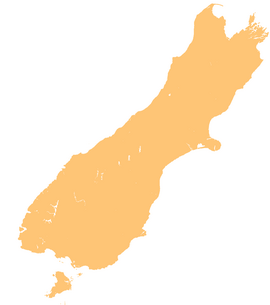Parapara River
| Parapara River | |
|---|---|
 | |
 Route of the Parapara River | |
| Location | |
| Country | New Zealand |
| Physical characteristics | |
| Source | |
| • location | Parapara Peak |
| • coordinates | 40°50′11″S 172°38′50″E / 40.8363°S 172.6471°E |
| • elevation | 1,249 metres (4,098 ft) |
| Mouth | |
• location | Parapara Inlet |
• coordinates | 40°43′42″S 172°40′48″E / 40.72821°S 172.68005°E |
• elevation | 0 metres (0 ft) |
| Length | 20 km (12 mi) |
| Basin features | |
| Progression | Parapara River → Parapara Inlet → Golden Bay / Mohua → Tasman Sea |
| Tributaries | |
| • left | Blue Creek, Greenwood Creek, Glen Gyle Creek, Raby Riley Gully |
| • right | Grueby Creek, Happy Valley Stream, Dam Creek, Washbourn Creek |
The Parapara River is a river of the Tasman Region of New Zealand's South Island. It flows generally north from its watershed in the Kahurangi National Park, reaching Golden Bay at the small settlement of Parapara, 5 kilometres south of Collingwood.
In Māori tradition, the river is inhabited by a taniwha called Kaiwhakaruaki, who used to attack the people of Motueka and Tākaka. This tradition derives from Society Islands in Polynesia, where a monstrous shark called 'Aifa'arua'i (a cognate of Kaiwhakaruaki) is said to have lived in the Parapara Strait between Motue'a and Taha'a islands (cognates of Motueka and Tahaka).[1]
See also
References
"Place name detail: Parapara River". New Zealand Gazetteer. New Zealand Geographic Board. Retrieved 12 July 2009.
- ^ Anderson, Atholl (2015). "Ancient Origins, 3000 BC – AD 1300". In Anderson, Atholl; Binney, Bridget; Harris, Aroha (eds.). Tangata whenua : a history. Wellington, New Zealand: Bridget Williams Books. p. 30. ISBN 9780908321537.


